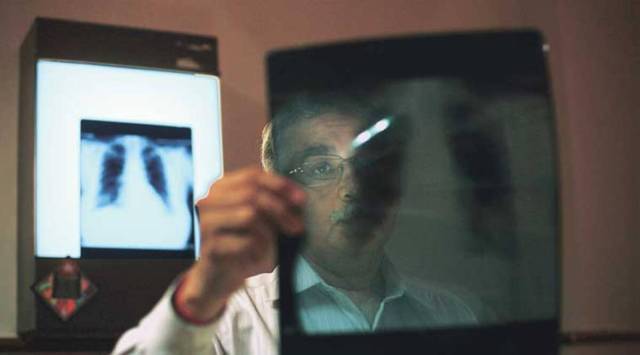For third consecutive year, more women diagnosed with TB than men, show BMC data
In 2022, a total of 33,080 women contracted TB compared to 32,487 men diagnosed with the infection.
 Health experts also pointed out that when it comes to medical diagnosis and treatment, men are always priotised over women. This can contribute towards further delay in their diagnosis, which is now being reflected in the data.
Health experts also pointed out that when it comes to medical diagnosis and treatment, men are always priotised over women. This can contribute towards further delay in their diagnosis, which is now being reflected in the data. For the third consecutive year, more women contracted tuberculosis (TB) than men in Mumbai, revealed data from the Brihanmumbai Municipal Corporation (BMC) for the year 2022.
Last year, The Indian Express had reported a change in the infection pattern, when more women contracted TB than men in 2020 and 2021, when the city was dealing with the outbreak of the novel coronavirus. But even though the pandemic subsided last year, the trend has not reverted to the pre-pandemic situation, according to the data.
In 2022, a total of 33,080 women contracted TB compared to 32,487 men diagnosed with the infection. In the previous year, as many as 31,237 women contracted TB against 27,375 men, of the 58,642 diagnosed TB patients in Mumbai. In 2020 when the trend started, a total of 43,464 patients were diagnosed with TB, of which 21,162 were male and 22,053 were female.

However, in the pre-pandemic years, such as in 2018, of the 57,031 total TB patients, 29,371 were male and 27,448 were female. In 2019, out of the 60,597 diagnosed TB patients, 31,160 were male and 29,214 were female.
The pandemic had further widened the gander-gap in the healthcare burden posed by TB. Officials of the civic health department, which has been studying the gender-specific change in the infection pattern, outlined various possible reasons for the trend reversal.
“During the national lockdown, active TB patients couldn’t visit hospitals for treatment and the women in their families became the main caregivers. Women often have low immunity and they ended up contracting the infection,” said Dr Mangala Gomare, executive health officer, BMC. She also said the civic body conducted robust TB screenings, and many earlier undiagnosed TB patients, especially women, were detected in the process.
Civic officials also pointed out that many women, especially those living in non-residential areas, suffer from low immunity due to anemia, repeated pregnancies and low intake of nutritional food. “In the lockdown, when dry rations were provided, women would always compromise and give the major share of the food to their husband or children. This impacted their immunity, making them more vulnerable to TB,” said Dr Zaheed Khan, a general physician who practices in Govandi.
Health experts also pointed out that when it comes to medical diagnosis and treatment, men are always priotised over women. This can contribute towards further delay in their diagnosis, which is now being reflected in the data.
“Early symptoms, such as when a woman starts losing weight or coughing, are often completely ignored,” said Seema Deshpande, Mumbai president of Bhartiya Stree Shakti.
Additional stress caused by emotional and financial burden, long working hours and undetected Covid-19 infection is also likely to have suppressed the immunity of women, believe doctors. Doctors also stressed on the need for a clinical study that will be essential to establish the concrete causes behind this trend.
“TB is known to stay dormant and spread vigorously when immunity is compromised. Prima facie, these factors may have collectively caused infections among women, as compared to men,” Dr Hemlata Arora, senior consultant, infectious diseases, Nanavati Hospital, had told The Indian Express earlier.












